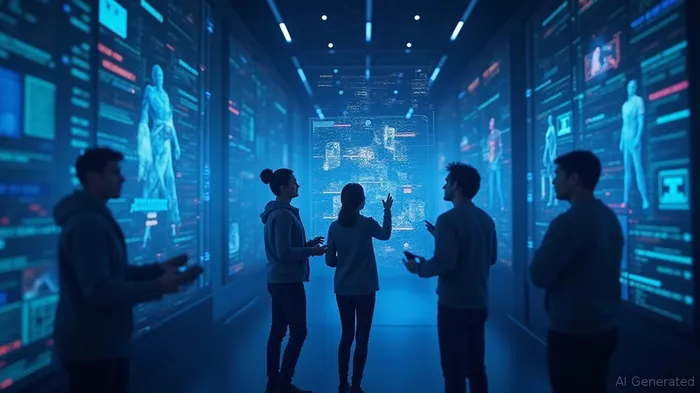Blockchain and AI Merge to Revolutionize Gaming Ecosystem
Blockchain technology is increasingly being recognized as a critical component in the development of next-generation gaming, particularly in conjunction with artificial intelligence (AI). KinKINS-- Wai Lau, CEO of ZKcandy, argues that while AI can enhance gameplay by creating personalized experiences, it alone is not sufficient to build a consistent and social gaming ecosystem. Blockchain, with its decentralized infrastructure, is essential for recording and preserving game progress, player achievements, and AI-generated content, ensuring that these elements are not lost or locked within a single game session or platform.
In traditional gaming models, AI creations and player interactions are stored on centralized servers, making them disposable and subject to the lifecycle of the game or corporate policies. This centralized approach limits the potential for consistent narratives and character development, as AI agents forget past interactions once a session ends. Moreover, players do not own the content they create, leading to the exploitation of their creativity. Blockchain addresses these issues by providing a distributed ledger that records game contents onchain, allowing AI agents to learn and evolve from session to session and granting players ownership of their creations.
By recording AI progress onchain, players own and control their history, which opens up opportunities for managing in-game assets. Blockchain enables the minting of generated items as non-fungible tokens (NFTs), ensuring that these assets are stored in a decentralized manner and cannot be deleted or restricted. This allows players to transfer their assets across different games and platforms, creating a unified social ecosystem where players can compare their achievements, show off their creations, and appreciate others' journeys. This social dynamic, built around provable creativity and shared experiences, keeps players engaged and connected.
The cost-efficiency of storing data onchain has improved significantly with the advancement of Layer-2 and Layer-3 platforms. These platforms can handle thousands of transactions per second at a nearly invisible cost, making it feasible to store large amounts of data, including AI data accumulation for numerous users. This robust infrastructure supports the integration of blockchain in gaming, enabling a true social experience where players can monetize their creations and developers can profit from marketplace transactions, minting fees, and premium AI tools.
As large enterprises and banks increasingly rely on decentralized infrastructure, the trend of embracing public ledgers in gaming is gaining momentum. Blockchain is no longer just a nice add-on but a critical component for supporting AI-driven entertainment. It provides the necessary memory, ownership, and monetization features to create a true social gaming experience. Without the integration of Web3 technologies, next-generation games risk remaining mere demos of their full potential, lacking the depth and continuity that blockchain can provide.

Quickly understand the history and background of various well-known coins
Latest Articles
Stay ahead of the market.
Get curated U.S. market news, insights and key dates delivered to your inbox.



Comments
No comments yet